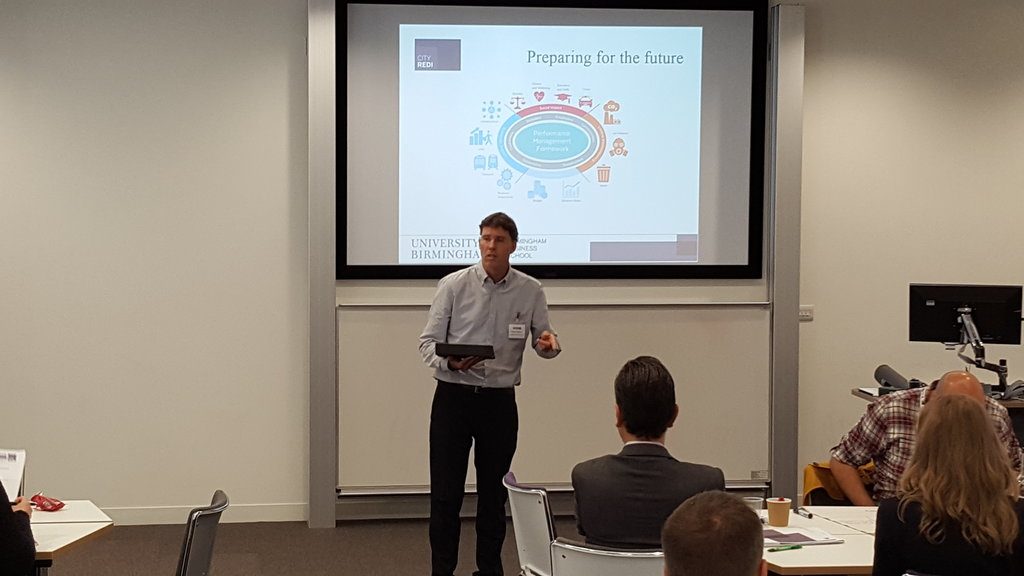
City-REDI and Black Country Consortium co-hosted the second of our Analystfest events, aimed at bringing together researchers and analysts from across the region. The session focused on the West Midlands Performance Monitoring Framework and the latest ‘State of the Region’ about to be published.
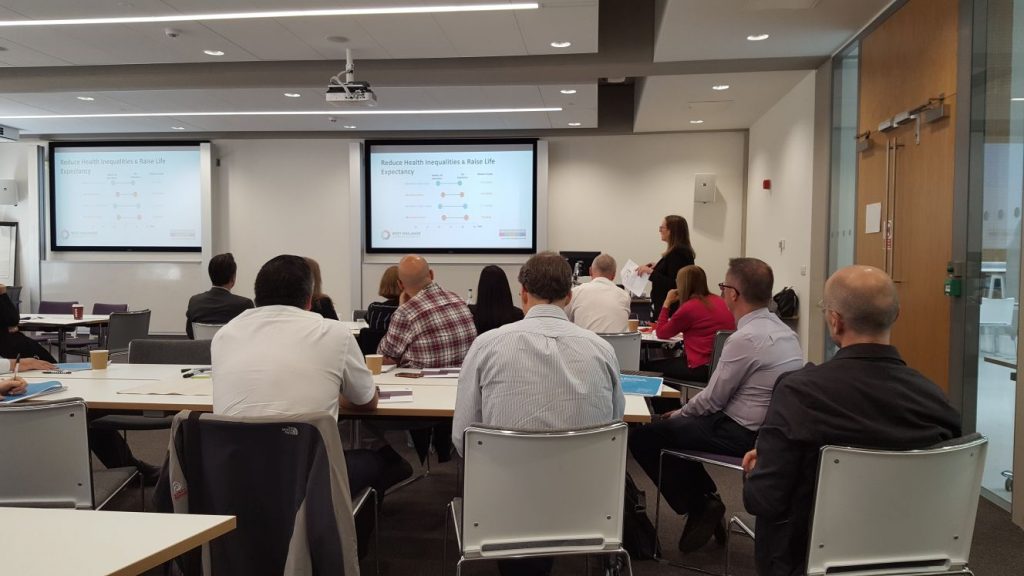
The purpose of the event was to review the document and content and look for ways to build on the data sources and our understanding for next year.
After presentations from Rebecca Riley, City-REDI and Delma Dwight, Black Country Consortium (to view Delma’s presentation, please click here) we broke up into the 4 main themes in the State of the Region and discussed how as a network we could enhance them for the future:
Environmental Impact facilitated by Charlotte Hoole
- Data used to measure environmental impact is limited. Additional datasets that may want to be considered in the future include those that capture 1) diesel car registrations, 2) funding received for green energy, technology, and infrastructure, 3) environmental breaches, 4) green space, and 5) carbon credits. Additional indicators that may also want to be captured include housing, quality of the built environment, recycling, and noise pollution.
- The environment is underplayed as a key priority. Equally, however, being green requires funding and investment, and in the context of austerity, the environment is quite often the first item that gets side lined to focus on fiscal-, economic- and social- related matters.
- There is a need to emphasise the value of investing in the environment, viewing it as an opportunity to capitalise on rather than as an issue to be feared or overcome. Places need to be making the most of the large amount of funding available for investing in green energy, technology, and infrastructure, as well as recognise the money that can be made from investing in these.
- There is a need to plan for the future and lay down the appropriate foundations to be able to adopt, adapt and respond to new technologies (e.g. electric cars, driverless cars).
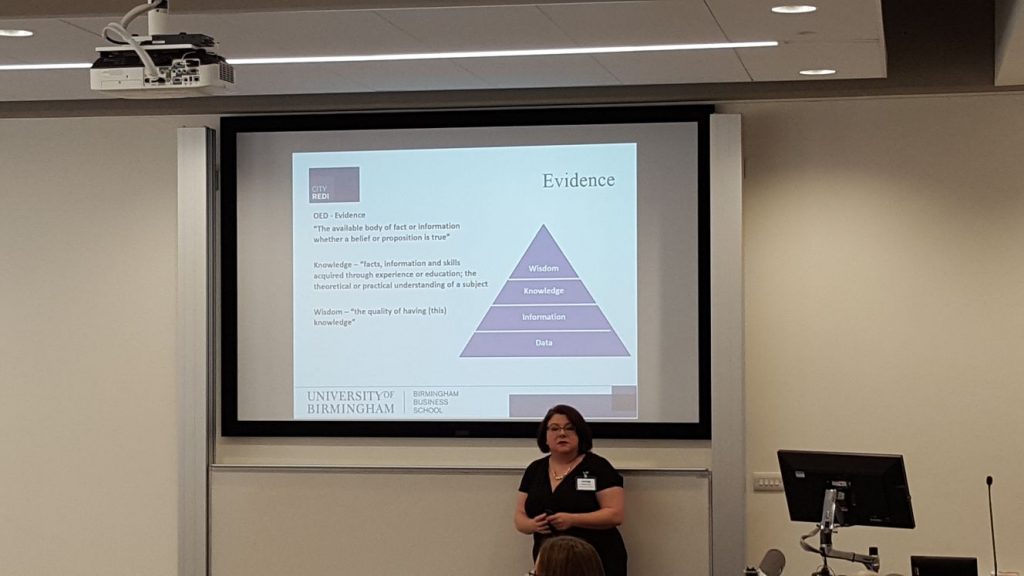
Social Impact facilitated by Anne Green
The social impact discussions covered Education and Skills, Fitness and Well-Being, Equality and Crime. Potential ‘missing indicators’ are
- homelessness
- childhood obesity
- uptake of therapies
- crime severity
- digital exclusion
- hard and soft skills combined
A plea was made for ‘positive’ indicators and indicators measuring the ‘distinctiveness’ of the West Midlands. More focus is needed on links between indicators (e.g. health, crime and skills) and what the narrative of those links is for people with different socio-economic and demographic characteristics. Unpacking ‘good work’ and ‘bad work’ (and concomitant social impacts) is one way forward. Contextually, understanding the health of the voluntary sector is of relevance for current policy delivery.
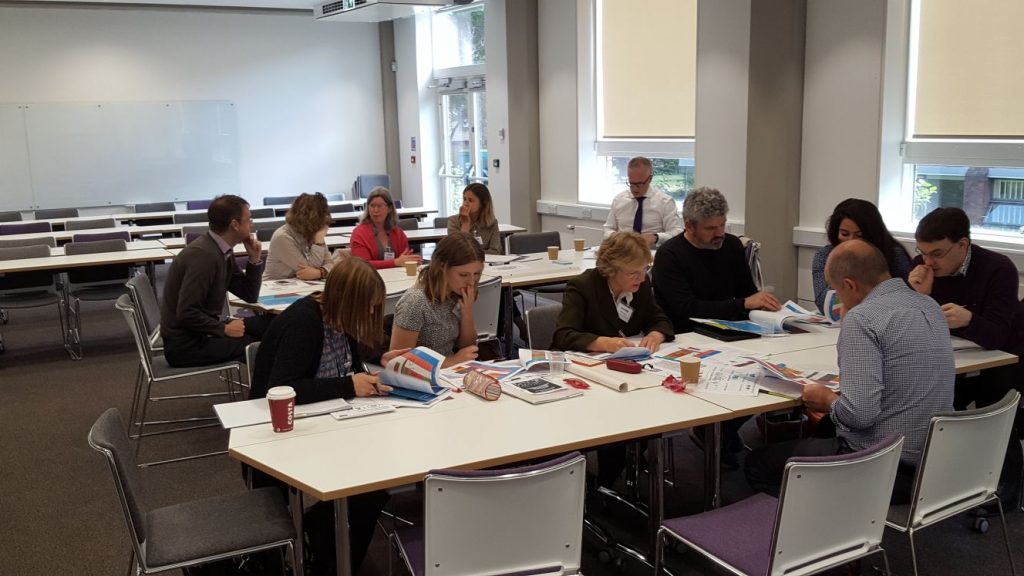
Fiscal Impact facilitated by Tasos Kitsos
There was a lively debate across all four tables with interesting and varying views.
Key points include:
- Need to understand structure and trend of income and expenditure together with qualitative characteristics (i.e. jobs vs good jobs, number of firms vs number of successful businesses etc)
- Need to identify comparator places and look at performance within the country framework (economy cannot do well when country is not performing well)
- Exploring potential for including targets on how the WMCA should look post Brexit
- A lot of interest in understanding the impact of events such as procurement shifting, Commonwealth games, Brexit etc.
- Need to understand inter-relationships between different variables.
Data of interest to include:
- Business survival rates
- Occupational & Sectoral breakdown of employment
Economic Impact facilitated by Delma Dwight
- To supplement the strategic indicators, work to understand micro level firm performance and greater access to the ONS VML etc would be really helpful. There is a need to engage with ONS and access more localised information.
- A variety of experts that can help provide some of the qualitative context – Chambers, PHE, ONS, federations, Universities etc.
- A lot of information already there need to audit what is available and then work on how best to get it – need for a WMCA Information strategy.
- Need to understand local people perception e.g. willingness to travel to work etc.
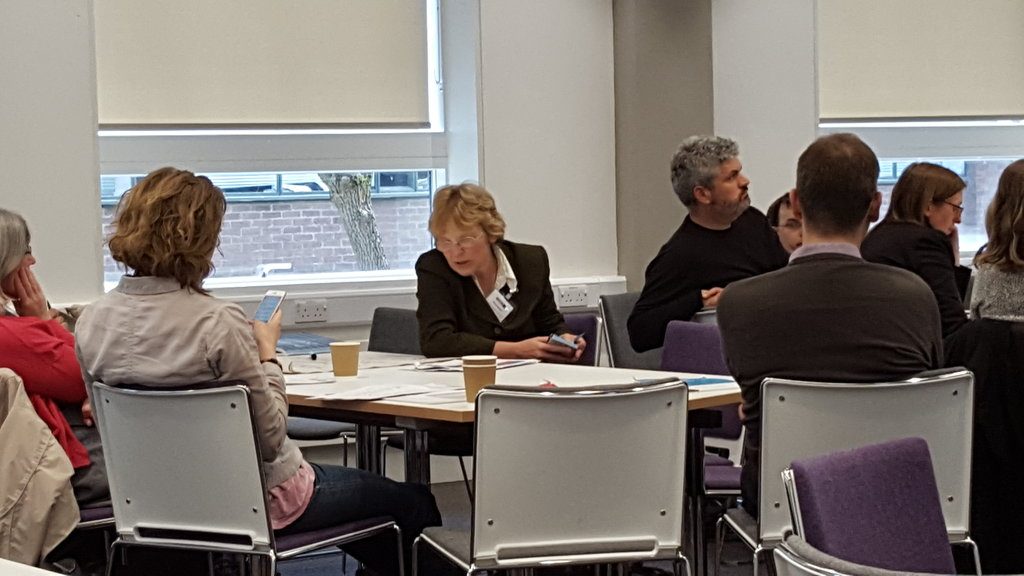
Feedback from the day has been very positive and City-REDI will be looking at how we might develop this and take it further, a number of people requested that we hold an event regularly so we will look at quarterly open events.
In the meantime, we would like to establish working groups to look at the themes in the Strategic Economic Plan. Read our blog and twitter feed to keep up to date with these plans, and if you want to help shape those working groups please Get in touch.
To sign up to our blog mailing list, please click here
